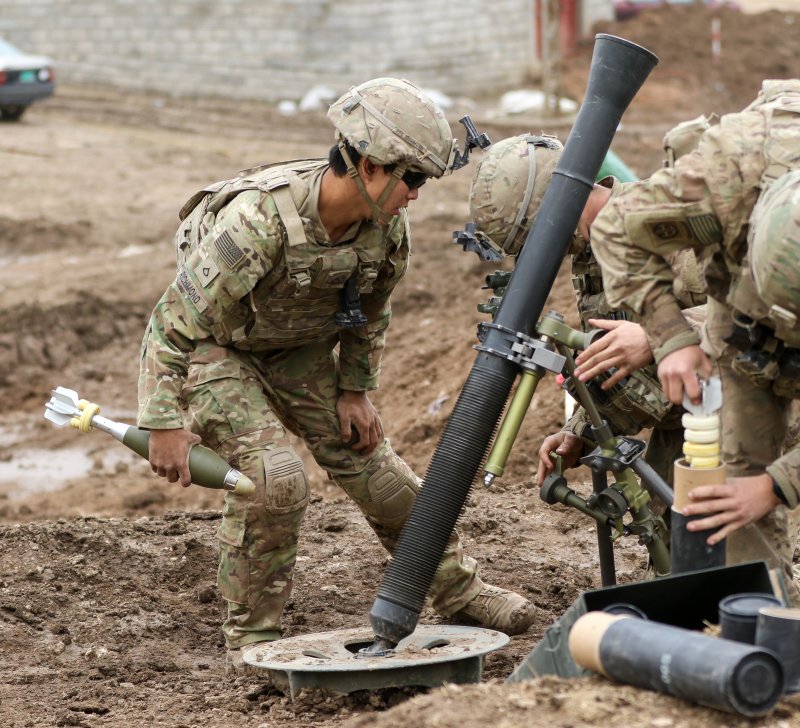New research sheds light on how military veterans respond to traumatic events and recover from post-traumatic stress disorder, or PTSD. Photo by Staff Sgt. Jason Hull/U.S. Army/UPI
April 17 (UPI) -- Researchers at North Carolina State University have found that veterans who have post-traumatic stress disorder, or PTSD, are more likely to have post-traumatic growth.
Post-traumatic growth is a condition opposite of PTSD and includes an increased appreciation of life, awareness of new possibilities and enhanced inner strength.
"There's been a lot of attention paid to PTSD in our military population, but very little research on post-traumatic growth," Sarah Desmarais, an associate professor of psychology at North Carolina State University, said in a press release. "But these findings are important, because they show that the way veterans respond to trauma is not a zero-sum game."
Researchers surveyed 197 veterans form all branches of the military, about half from the Army, with 72 percent active duty and 69.4 percent male.
Participants reported on traumatic events occurred within the previous three years and were asked questions designed to measure post-traumatic growth on a scale from zero to 105.
Researchers found participants fell into four groups: The short-term moderate group comprised 33.7 percent of participants and scored between 40 and 60 on the post-traumatic growth score six months after the traumatic event; the long-term moderate group of 18.7 percent of participants reported the same amounts of post-traumatic growth but only after a year or more from their traumatic event; and the high-growth group of 20.7 percent of participants who score between 70 and 105 on the post-traumatic growth chart a few months to several years after the traumatic event. The last group consisted of 26.9 percent of participants who had limited post-traumatic growth.
"Some Department of Defense [DoD] training implies that people are either resilient or they're not, but we found that people can struggle with PTSD and experience emotional growth due to traumatic events," said Jessica Morgan, a doctoral student at NC State. "In addition, growth can occur very quickly, or it can be a process that unfolds over years. In other words, while recovering from trauma can be a painful and difficult ordeal, veterans and their families can have hope, and the DoD should pay attention to this field of study."
Researchers found that the group that had the greatest post-traumatic growth consisted of participants who were the most likely to report that their trauma fundamentally challenged the way they viewed the world, spent the most time thinking about their traumatic event and had the highest rate of PTSD.
"One of the key points here is that there can be real benefit from having military veterans think about their traumatic experiences," Desmarais said. "While it may be painful in the short term, it can contribute to their well-being in the long term."
The study was published in Military Psychology.















